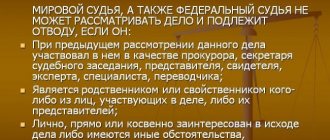1. It is not a crime to cause harm to an attacker in a state of necessary defense, that is, when protecting the personality and rights of the defender or other persons, the legally protected interests of society or the state from a socially dangerous attack, if this attack was associated with violence dangerous to the life of the defender or another person, or with an immediate threat of such violence.
2. Protection from an attack that is not associated with violence dangerous to the life of the defender or another person, or with an immediate threat of such violence, is lawful if the limits of necessary defense were not exceeded, that is, deliberate actions that are clearly inconsistent with the character and the danger of encroachment.
2.1. The actions of a defending person do not exceed the limits of necessary defense if this person, due to the surprise of the attack, could not objectively assess the degree and nature of the danger of the attack.
3. The provisions of this article apply equally to all persons, regardless of their professional or other special training and official position, as well as regardless of the ability to avoid a socially dangerous attack or seek help from other persons or authorities.
- Article 36. Excess of the perpetrator of the crime
- Article 38. Causing harm during the detention of a person who has committed a crime
Commentary to Art. 37 of the Criminal Code of the Russian Federation
Necessary defense is an inalienable right of the individual. The Constitution of the Russian Federation (Part 2 of Article 45) recognizes the right of everyone to defend their rights and freedoms by all means not prohibited by law. The purpose of necessary defense, its significance is to protect the individual, society and the state from socially dangerous attacks. The right to defense is a natural right of any person, regardless of professional or other training. Any citizen can exercise the right to necessary defense, but the law does not oblige him to exercise this right. With the necessary defense, harm is caused to the attacker. Formally, such actions fall under the signs of a criminal act. But the actions of the defender are not socially dangerous. Moreover, they are socially useful, encouraged by the state, since they are not only aimed at protecting legally protected interests, but also contribute to increasing the social activity of citizens. The institution of necessary defense is designed to ensure the rights of the defenders and other subjects from socially dangerous attacks, to protect the defender from possible unjustified prosecution for committing a crime, including for a crime associated with exceeding the limits of necessary defense.
According to Part 1 of Art. 37 of the Criminal Code of the Russian Federation it is not a crime to cause harm to an offender in a state of necessary defense, i.e. when protecting the personality and rights of the defender or other persons, the legally protected interests of society or the state from a socially dangerous attack, if this attack was associated with violence dangerous to the life of the defender or another person, or with an immediate threat of the use of such violence.
From the content of this norm it follows that if a socially dangerous attack was associated with violence dangerous to the life of the defender or another person, or with an immediate threat of the use of such violence, then the necessary defense will be lawful regardless of what means and methods were used to defense and what harm was caused to the attacker. The law recognizes in such cases the legality of causing any harm, up to and including causing death. Thus, in fact, we are talking about the absence of any restrictions (with some exceptions, which will be discussed below) when protecting such an object as human life. This prevents the limits of necessary defense from being exceeded in such situations.
The socially dangerous attack in question must be associated with violence dangerous to the life of the defender or another person, or with an immediate threat of such violence. In this case, the danger to life must be objectively existing and real. Otherwise, the actions of the defender may be regarded as imaginary defense, which entails criminal liability, or if the defender is in good faith and there is reason to believe that there is a danger to life, the actions of the defender should be assessed as innocent causing of harm.
Protection from an attack that is not associated with violence dangerous to the life of the defender or another person, or with an immediate threat of such violence, is lawful if the limits of necessary defense are not exceeded, i.e. intentional actions that are clearly inconsistent with the nature and danger of the attack.
In this position, established by Part 2 of Art. 37 of the Criminal Code of the Russian Federation, the legislator focuses on the following points. First: when protecting objects other than human life, the restrictions established by law must be observed. At the same time, it should be borne in mind that in some cases, causing death in the absence of an assault involving violence dangerous to the life of the defender or another person, or with an immediate threat of such violence, may also be lawful. For example, a woman causing death to her attacker during rape should be recognized as lawful.
When deciding whether there is violence dangerous to life, one should take into account the explanations of the Resolution of the Plenum of the Supreme Court of the Russian Federation dated December 27, 2002 N 29 “On judicial practice in cases of theft, robbery and robbery” that under violence dangerous to life life or health, it should be understood as such violence, which entailed the infliction of grave and moderate harm to the health of the victim, as well as the infliction of minor harm to health, causing a short-term health disorder or a minor permanent loss of general ability to work, or which, although did not cause harm to the health of the victim, nevertheless the moment of application created a real danger to his life or health.
Second: failure to comply with these restrictions specified in the law, i.e. exceeding the limits of necessary defense must consist of deliberate actions that are clearly inconsistent with the nature and danger of the attack.
As is known, in accordance with Art. 25 of the Criminal Code of the Russian Federation, a crime is recognized as committed intentionally if the person was aware of the social danger of his actions (inaction), foresaw the possibility or inevitability of socially dangerous consequences and wanted them to occur or did not want them, but consciously allowed these consequences or was indifferent to them. In this regard, it should be concluded that in the case of an attack that is not associated with violence dangerous to the life of the defender or another person, or with an immediate threat of the use of such violence, exceeding the limits of necessary defense is associated with the defender’s awareness of the wrongness and danger of his actions at the time of infliction harm. In other words, the defender must clearly realize that he has the opportunity to protect himself from an attack and stop it by using other means of defense, with less intensity, causing significantly less harm to the attacker compared to what was actually caused. Thus, the defender should strive not to reprisal the attacker, but to stop his actions and cause only the harm necessary to repel the attack. But at the same time, the ability of the defender to run away, call for help, or otherwise evade the attack has no legal significance. The presence of such a possibility should in no case be regarded as a factor in exceeding the limits of necessary defense.
In Part 2.1 of Art. 37 of the Criminal Code of the Russian Federation states that the actions of a defending person do not exceed the limits of necessary defense if this person, due to the surprise of the attack, could not objectively assess the degree and nature of the danger of the attack. In such situations, in the absence of an objective assessment of the circumstances of the attack, there is no intent to exceed the limits of necessary defense, and therefore causing harm in such situations is recognized as legitimate.
All persons have the right to necessary defense equally, regardless of professional or other special training and official position. This right, as noted above, belongs to the person and regardless of the ability to avoid a socially dangerous attack or seek help from other persons or authorities.
This provision, enshrined in Part 3 of Art. 37 of the Criminal Code of the Russian Federation, clarifies the provision on necessary defense in relation to persons whose professional duties include the suppression of socially dangerous attacks.
So, in Art. 24 of the Law of the Russian Federation of April 18, 1991 N 1026-1 “On the Police” contains a provision that the activities of a police officer are subject to the norms of the criminal legislation of the Russian Federation on necessary defense, causing harm when detaining a person who has committed a crime, extreme necessity, physical or mental coercion, about reasonable risk, execution of an order or instruction. At the same time, the prevention and suppression of crimes and administrative offenses are the responsibility of the police, in the performance of which, in cases established by law, police officers have the right to use physical force, special means and firearms.
———————————
Gazette of the SND and the Supreme Soviet of the RSFSR. 1991. N 16. Art. 503.
Similar legislative provisions exist for employees of a number of other services. The general right to necessary defense, including that of said employees, cannot be limited. Therefore, in case of conflict of other legislative acts with the provisions of Art. 37 of the Criminal Code of the Russian Federation, the provisions of the latter must be applied. However, this does not exclude the need to take into account, when deciding on the necessary defense, such factors as the physical and psychological training of police officers and other persons, the availability of special equipment and weapons.
The right to necessary defense cannot but have boundaries that determine the state of necessary defense and separate this state from the state of exceeding its limits. The legality of the necessary defense is determined by a number of signs, which are usually divided into two groups:
a) related to the encroachment;
b) related to protection.
The circumstance of the legality of the necessary defense related to the encroachment is, first of all, the social danger of the latter, which is expressed in causing harm or the possibility of causing harm to social relations protected by criminal or other law. Here it is necessary to pay attention to the fact that, regulating the institution of necessary defense, the legislator focuses on the factor of public danger, and not the criminality of the attack. This approach means that the necessary defense can also take place in cases where the rights and legitimate interests of an individual, society, or state are violated not only by a crime, but also by another socially dangerous attack, for example, an attack belonging to the category of administrative offenses. In addition, there is a public danger in the unlawful actions of officials. Therefore, subject to other conditions established by law, the necessary defense is possible against such attacks.
A person who deliberately caused an attack in order to use it as a pretext for committing illegal actions (starting a fight, committing reprisals, committing an act of revenge, etc.) cannot be recognized as being in a state of necessary defense. What was done in such cases should be qualified on a general basis.
The second condition of legality is the existence of an encroachment. Establishing this circumstance is associated with determining the initial and final moments of the encroachment. The exercise of the right to necessary defense is possible only during the period of a socially dangerous attack. Thus, defense against a possible attack in the future will be unlawful. However, the state of necessary defense arises not only at the very moment of a socially dangerous attack, but also in the presence of a real threat of attack. The state of necessary defense can also occur when the defense followed immediately after the act of at least a completed encroachment, but due to the circumstances of the case, the moment of its completion was not clear to the defender. In this case, for example, the transfer of weapons or other objects used in the attack from the attacker to the defender cannot in itself indicate the end of the attack.
The actions of the defender who caused harm to the attacker cannot be considered committed in a state of necessary defense if the harm was caused after the attack was prevented or completed and the use of means of defense was clearly no longer necessary. In these cases, liability arises on a general basis.
The validity or reality of an encroachment also refers to the conditions for the legality of the necessary defense and consists in the fact that defense is possible only from a real, objectively existing encroachment, and not from an encroachment that exists only in the imagination of the defender. This is how necessary defense differs from imaginary defense.
The conditions of legality related to protection include: 1) the presence of objects that can be protected by exercising the right to necessary defense; 2) causing harm only to the offender; 3) absence of actions that are clearly inconsistent with the nature and danger of the attack.
When deciding the presence or absence of signs of exceeding the limits of necessary defense, one should take into account not only the compliance or inconsistency of the means of defense and attack, but also the nature of the danger that threatened the defender, his strength and ability to repel the attack, as well as all other circumstances that could influence the real balance of power between the attacker and the defender (the number of attackers and defenders, their age, physical development, presence of weapons, place and time of the attack, etc.). When an attack is committed by a group of persons, the defender has the right to apply to any of the attackers such protective measures as are determined by the danger and nature of the actions of the entire group.
The actions of the defender cannot be considered as committed in excess of the limits of necessary defense and in the case when the harm caused by him turned out to be greater than the harm prevented and that which was sufficient to prevent the attack, unless there was a clear discrepancy between the defense and the nature and danger of the attack.
———————————
On the issue of necessary defense, see also: Resolution of the Plenum of the Supreme Court of the USSR of August 16, 1984 No. 14 “On the application by courts of legislation ensuring the right to necessary defense from socially dangerous attacks” // Bulletin of the Supreme Court of the USSR. 1984. No. 5. Despite changes in legislation, many provisions of this Resolution are of practical importance at the present time.
The criminal law establishes liability only for the following acts committed when the limits of necessary defense are exceeded: murder (Part 1 of Article 108 of the Criminal Code of the Russian Federation) and intentional infliction of grievous bodily harm (Part 1 of Article 114 of the Criminal Code of the Russian Federation). Intentional infliction of grievous bodily harm resulting in death through negligence should also be qualified according to the specified norm. Establishing the range of acts, the commission of which in conditions of exceeding the limits of necessary defense may entail criminal liability, the legislator did not include among them the intentional infliction of minor harm to health and harm to health of moderate severity. Consequently, causing such harm to the attacker under no circumstances can be considered an excess of the limits of necessary defense due to the absence of a clear discrepancy between the protection and the nature and danger of the attack. Causing any harm to the offender through negligence is not such an excess.
Provoking the necessary defense
The concept of “self-defense provocation” does not exist in Russian legislation. At the same time, in law enforcement practice, provocation is understood as the artificial creation of conditions that a person plans to use to reprisal a person. In this case, the goal of the provocateur is not to protect his own rights and interests, but to take revenge.
According to the federal law “On Weapons”, citizens, if they have the appropriate permit to store and carry weapons, can use them not only during sporting events, hunting, educational and training sessions, but also for self-defense.
This rule, introduced in 2014, did not have a significant impact on judicial practice. As before, very few acquittals are made against defending persons who acted with the use of weapons.
Judicial practice under Article 37 of the Criminal Code of the Russian Federation
Appeal ruling of the Judicial Collegium for Criminal Cases of the Supreme Court of the Russian Federation dated 07/02/2019 N 44-APU19-7SP
In the appeal and addition to it, the convicted Borisov V.G. considers the sentence illegal and unfounded, passed in violation of the norms of criminal and criminal procedural law. He claims that the court's conclusions about his guilt do not correspond to the actual circumstances of the case, the criminal case was considered with an accusatory bias, as evidenced, in particular, by the refusal to satisfy his petitions. He asks for an examination of the video materials, pointing out their falsification and editing. He gives arguments according to which he was forced to defend himself from the unlawful actions of the victims, and asks to change the qualifications of his actions, taking into account the provisions of Art. Criminal Code of the Russian Federation.
Appeal ruling of the Judicial Collegium for Criminal Cases of the Supreme Court of the Russian Federation dated November 21, 2019 N 45-APU19-25
In addition, recognizing the actions of Hopfauf E.Ya. regarding the deprivation of P.’s life committed in a state of necessary defense, the court did not refer to the norm of substantive law, namely Art. of the Criminal Code of the Russian Federation and did not make any procedural decision in connection with the recognition of the actions of the convicted person to take P.’s life as legal (they did not stop the criminal prosecution in part or did not acquit in part) by issuing an appropriate resolution or indication in the operative part of the sentence, and also did not explain Hopfauf E.Ya. the right to rehabilitation in accordance with the requirements of Art. 133 Code of Criminal Procedure of the Russian Federation.
Determination of the Constitutional Court of the Russian Federation dated June 30, 2020 N 1410-O
THE RIGHTS OF APPLICATION OF THE ARTICLE OF THE CRIMINAL CODE OF THE RUSSIAN FEDERATION The Constitutional Court of the Russian Federation composed of Chairman V.D. Zorkin, judges K.V. Aranovsky, A.I. Boytsova, N.S. Bondar, G.A. Gadzhieva, Yu.M. Danilova, L.M. Zharkova, S.M. Kazantseva, S.D. Knyazeva, A.N. Kokotova, L.O. Krasavchikova, S.P. Mavrina, N.V. Melnikova, Yu.D. Rudkina, V.G. Yaroslavtseva,
Appeal ruling of the Judicial Collegium for Criminal Cases of the Supreme Court of the Russian Federation dated 02/09/2017 N 34-APU17-1sp
In addition, questions containing such wording as “foreseeing the inevitability of death and wishing for it”, “fearing for one’s life and health, as well as for the life and health of one’s son”, which are evaluative and related, could not be used in the questionnaire. with the determination of the type of intent of Mikhailovsky (Article and Criminal Code of the Russian Federation), as well as the presence of the necessary defense or its excess (Article and Article 108 of the Criminal Code of the Russian Federation), that is, they relate to legal issues that must be resolved without the participation of a jury by the presiding judge alone, based on factual circumstances established by the verdict of the jury.
Appeal ruling of the Judicial Collegium for Criminal Cases of the Supreme Court of the Russian Federation dated 01.03.2017 N 55-APU17-2
According to Part 1 of Art. The Criminal Code of the Russian Federation does not make it a crime to cause harm to an attacker in a state of necessary defense, that is, when protecting the personality and rights of the defender or other persons, the legally protected interests of society or the state from a socially dangerous attack, if this attack was associated with violence dangerous to the life of the defender or another person, or with an immediate threat of such violence.
Appeal ruling of the Judicial Collegium for Criminal Cases of the Supreme Court of the Russian Federation dated March 16, 2017 N 50-APU17-1
Motivating the conclusion that the convict was guilty of the attempted murder of K. and causing harm to Zh.’s health, the court reasonably accepted as evidence the testimony of the victims of Zh.K. that the initiator of the quarrel was the convict himself, hitting K. in the face with his fist, and then he is stabbed with a knife. When Zh. tried to prevent Adyrbaev, he stabbed Zh. The circumstances indicated by the victims inflicting bodily injuries on them were confirmed by the testimony of witnesses F. and F. and expert opinions on the presence of bodily injuries on the victims and the convicted person. Meanwhile, according to the provisions of Art. The Criminal Code of the Russian Federation does not recognize a person who provoked the victim as being in a state of necessary defense in order to use his retaliatory actions as a reason to commit an unlawful act, including one aimed at depriving the victim of his life. What was done in these cases is subject to qualification on a general basis.
Appeal ruling of the Judicial Collegium for Criminal Cases of the Supreme Court of the Russian Federation dated April 18, 2017 N 9-APU17-3
Based on the totality of evidence in the case, the court came to a reasonable conclusion that in the case under consideration, the grounds for applying Art. There were no criminal codes of the Russian Federation; it was not a socially dangerous attack, in which the right to necessary defense arises, but a conflict based on personal hostility against the background of alcohol consumption, which resulted in the intentional death of two persons.
Appeal ruling of the Judicial Collegium for Criminal Cases of the Supreme Court of the Russian Federation dated November 7, 2017 N 14-APU17-12
Provided by Art. The Criminal Code of the Russian Federation does not see signs of necessary defense or its excess in the actions of convicts. The punishment assigned to each of them complies with the requirements of the law. It is proportionate to all the circumstances established in the case, is fair and cannot be mitigated.
Determination of the Judicial Collegium for Criminal Cases of the Supreme Court of the Russian Federation dated May 29, 2018 N 69-UD18-7
In the cassation appeal, the convicted Semenov S.O. disputes the validity of the court decisions taken against him and asks for their review, pointing out that he did not have the intent to cause M. grievous harm to health, but was defending himself from the unlawful actions of the victim himself, who attacked him, and in whose hand there was a knife. He believes that he was in a state of necessary defense, but he did not understand how the knife got into the victim’s body after he twisted the knife out of the victim’s hand. In addition, he points out that the court did not check whether he was in a state of strong mental agitation during the commission of these actions against the victim, and the court also did not take into account as a mitigating circumstance the fact that before everything happened, he asked neighbor O. to call the police, because M. became rowdy, and also after the incident he asked her about it. Believes that the court had grounds to apply Art. of the Criminal Code of the Russian Federation when assigning punishment to him. He asks to reclassify his actions taking into account the provisions of Art. of the Criminal Code of the Russian Federation, as well as apply Art. Criminal Code of the Russian Federation.
Appeal ruling of the Judicial Collegium for Criminal Cases of the Supreme Court of the Russian Federation dated January 22, 2019 N 55-APU18-5
In this case, it should be assumed that in the case there are no grounds for applying the rules of Art. Art. , Criminal Code of the Russian Federation. Under certain circumstances, convicted persons could file complaints with the competent government authorities. The statement of lawyer A.A. Golovchenko is unfounded. about the failure of the court of first instance to establish the amount of damage caused by FKU IK....
Appeal ruling of the Judicial Collegium for Criminal Cases of the Supreme Court of the Russian Federation dated February 14, 2019 N 13-APU19-1
He believes that Bryukhachev, in the conditions of the conflict that occurred, acted in a state of necessary defense, which excludes his responsibility for the consequences that occurred in accordance with Art. Criminal Code of the Russian Federation. In addition, it indicates the injustice of the verdict and the excessive severity of the imposed punishment.
Recommended publications:
Popular questions and answers about the division of an apartment acquired together during marriage:
- Division of jointly acquired real estate of spouses (apartment acquired during marriage and before marriage)
- Division of jointly acquired property of spouses and cohabitants, division of loan debts
We recommend the following publications on the division of common debts of spouses (under credit obligations):
- Comments on Article 39 of the Family Code of the Russian Federation
- other publications in the section Division of property of spouses, divorce, marriage contract (samples of statements of claim, agreements on the division of common property of spouses, samples of marriage contract)
- Statement of claim for division of marital property
Agreement on the division of common property of spouses
- Sample agreement on the division of common property of spouses
- Sample (example) of an agreement on the division of property of spouses
- Statement of claim (counter) to invalidate the agreement on the division of marital property and the allocation of a share
Law on self-defense Federal Law “On Weapons” No. 150-FZ
In 2015, the State Duma of the Russian Federation considered a bill to amend clause 2.1. Article 37 of the Criminal Code of the Russian Federation. Deputies proposed to amend the paragraph to the effect that the use of self-defense weapons specified in paragraphs 1, 2, 3 of Part 3 of Federal Law No. 150-FZ “On Weapons” to protect health, life and property should not be qualified as excess limits of forced self-defense. This bill did not find support among the majority of parliamentarians, and therefore no changes were made to the Criminal Code of the Russian Federation.
ATTENTION!
Due to recent changes in legislation, the information in this article may be out of date!
Our lawyer will advise you free of charge - write in the form below.
- lawyer







